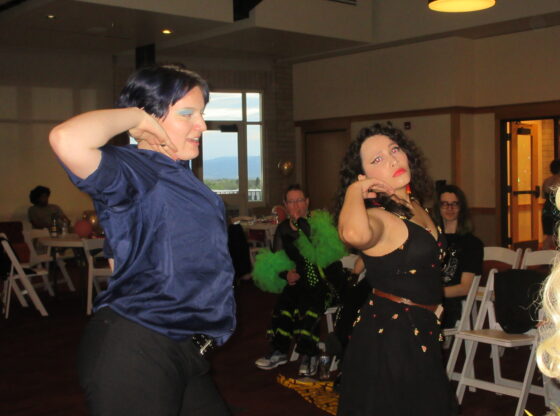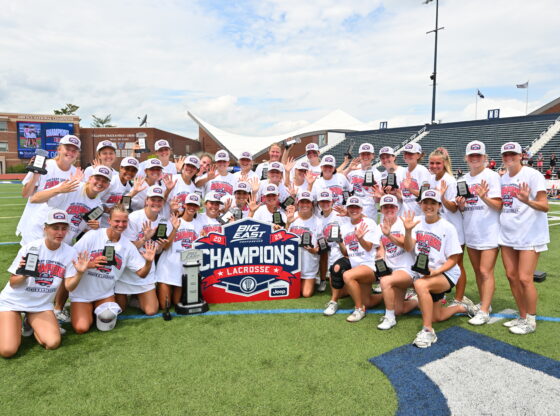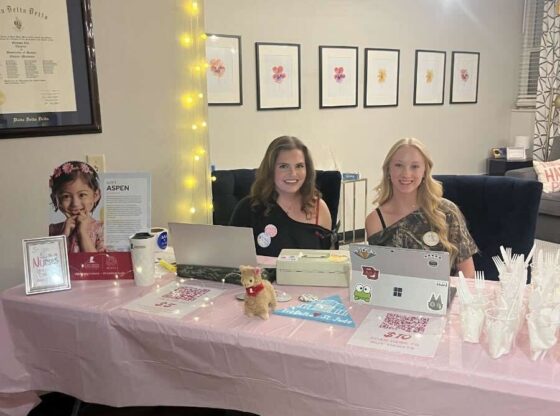Caris Fox, a junior at DU, is “taking back the narrative,” as she hosts this season of “R.A.G.E.”—a podcast that covers topics surrounding racial injustice with a cast of scholars, students and activists. R.A.G.E.’s mission is to uplift the voices of race scholars and community activists who engage in discourses on racial inequality within Denver’s neighborhoods, schools and institutions.
Fox works with IRISE, the Interdisciplinary Research Institute for the Study of (in)Equality at DU, as a program and research assistant. Their mission is to “work towards racial justice through research, scholarship and creative work.”
IRISE was created in 2013 by Dr. Tom Romero who also serves as the interim vice chancellor for diversity and inclusion. Romero expressed that “the work of IRISE is about joining underserved and underrepresented communities [together] to dismantle systems of oppression and inequity.”
The Institute was designed as an outlet for faculty and students to connect on issues of inequality, social justice and inclusivity. In 2017, IRISE began to focus its efforts on facilitating conversations regarding how DU could play a more significant role in responding to racial inequality. This initiative brought IRISE to center DU students’ perspectives on the racially-hostile culture on campus. This encouraged students, such as Fox, to play a leading role in projects such as the R.A.G.E. podcast.
As Fox routinely states in the podcast introduction, “We are focusing on social movements, organizations and individuals who are doing work in the community to positively influence a community culture. We are starting to highlight students who are doing amazing work.”
When IRISE started the podcast, it was meant to be an outlet for faculty of color to talk about their struggles in higher education. The Higher Education Research Institute (HERI) surveyed more than half a million faculty from 1,100 universities, and roughly 50% of Black faculty felt stressed from discrimination. Around 70% of Black faculty feel they need to work harder than their colleagues.
“This podcast embodies the emotions that race scholars experience and their well-being [as affected by] feeling the need to monitor or hold back their emotions,” Fox said.
People of color often feel the need to censor their emotions in predominantly white institutions. This can lead to an increase in mental health issues, as a result of the constant fight against the emotional scars of racism and oppression.
Season four, “The Catalyst,” is headed by Fox. It focuses on healing and resistance against systems of oppression. It differs from other podcasts that focus on topics of race but emphasize white privilege and white supremacy such as the Nod and Seeing White. These concepts are important and educational but can take away from the emotions and healing of the BIPOC community. The topic of white privilege is discussed in a few of the R.A.G.E. episodes, but does not center around white supremacy but rather healing, equity and creation. At present, R.A.G.E. focuses on transformative justice, representation as it impacts identity, gender violence, how to make education on social justice accessible and more.
“The more you know, the more you realize you do not know,” Fox said, emphasizing the importance of critical race education, “Ignorance comes at someone else’s expense.”
R.A.G.E. discusses the valuable research, ideas and initiatives spearheaded by race scholars. This work is usually covered by white policies and work in higher education.
The beginning of each podcast begins with Fox’s grateful words, as she thanks each listener for tuning in. She explains the goal of the podcast and tells listeners to “expect exciting, interesting and informational individuals who are active members of the community.” They should also expect to learn “ways that you can support and be involved in creating sustainable change.”
Fox speaks with professors, students and Denver activists on the R.A.G.E. podcast. One such guest was Mason Estes, a DU student who spoke out on the harmful effect of Indigenous youth stereotypes.
In an episode released on Jan. 31, Fox asked Estes, “What was it that led you to want to make an impact within your community?”
Estes responded with, “I realized my Indigenous identity had to be a part of something greater…I knew this had to be self-propelled because I did not have a lot of activist role models or people involved in the community. I had to discover that on my own.”
Other guest speakers have included Christina Yebuah and Kahlea Hunt-Khabir of Her Health Her Truth of Colorado Black Health Collaborative, who conversed about Black womanhood. Dr. May Lin of DU brought up the vital role of emotional attachment to activism in order to create change and raise awareness on topics such as mass incarceration, the school-to-prison pipeline and immigration.
“Guests on the podcast are normally DU-affiliated or in the Denver area, and it shows how issues of injustice are right at our front door,” Fox said.
The podcasts release biweekly on Monday or Sunday. Each episode is around 40 minutes long. There are several episodes in the works on Black History Month, wecanDUbetter and critical race theory. Students can access the R.A.G.E. podcast through Apple podcast, Google podcast, Podbean or directly on the R.A.G.E. website.
“The podcast is a good place to learn more about social injustice and start to make the world a better place,” Fox said.










